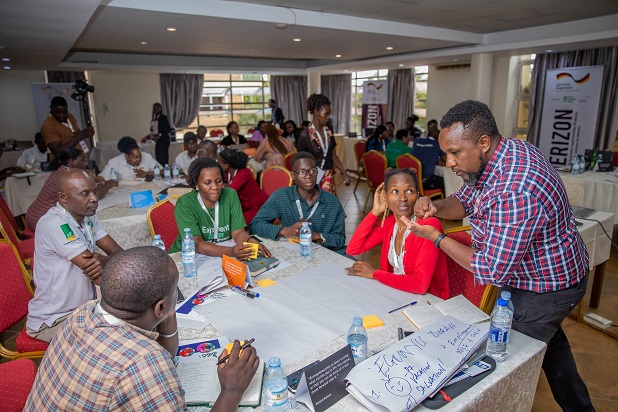By Josephine Munduru
Women entrepreneurs are a powerful force in East Africa’s economies. Kenya and Uganda consistently rank high globally for female business ownership, particularly in vital sectors like agriculture and trade, which serve as cornerstones of both nations’ GDP. Despite owning nearly half of the small and medium enterprises in both countries (47% in Kenya and 38.4% in Uganda), women-owned and women-led businesses struggle to transition from small-scale operations to significantly larger enterprises. Limited access to strategic guidance, robust networks, and essential growth capital are frequently cited as key barriers.
This scaling challenge represents a significant missed economic opportunity. Studies repeatedly highlight a substantial financing gap for women-owned SMEs across Africa, estimated in billions of dollars. In Uganda and Kenya, where agriculture employs upwards of 60% of the female labor force, enabling women-led agribusinesses to grow could dramatically impact food security and rural incomes. Furthermore, women often face barriers accessing the high-level business development services and strategic networks that unlock access to larger markets and investment needed for substantial expansion. Overcoming these obstacles is not just an issue of equity; it’s crucial for driving innovation and fostering economic prosperity.
However, their growth potential remains largely untapped. In Uganda, only 9% of commercial credit goes to women-led businesses, despite their sizable contribution to the private sector (SME Finance Forum). In Kenya, less than 7% of women-led MSMEs have access to formal financing, and the International Finance Corporation (IFC) estimates the financing gap for women-owned businesses at over $3.2 billion (IFC, 2024).
The challenge isn’t just capital. Many women-led businesses lack access to the tailored mentorship, strategic tools, and networks needed to grow beyond survival to scalable enterprises. This is not due to a lack of ambition or effort but rather a lack of infrastructure that understands and responds to the realities faced by women entrepreneurs in East Africa.
Addressing this critical scaling gap is the focus of the new “Herizon” program. Implemented by SHONA Group in partnership with Welthungerhilfe (WHH) and funded by Germany’s Federal Ministry for Economic Cooperation and Development (BMZ), Herizon aims to support 40 women-driven businesses in Uganda and Kenya that are either women-owned or women-managed across sectors such as agriculture, climate-smart food production and nutrition, Water Sanitation and Hygiene (WASH), digitalisation, skills development, and economic empowerment. These businesses had to have a business traction of 2 years in operations and an annual revenue of UGX 80 million or KES 3 million.
Now in its next phase, following intensive boot camps in both countries, the entrepreneurs are receiving ongoing support from SHONA’s senior business analysts to refine their 3-year growth plans and financial models. Upon completion, the entrepreneurs will gain access to technical experts who will help them address specific operational challenges identified through their business diagnostics, facilitated peer-learning groups led by coaches, uniquely funded learning exchange visits to inspiring East African businesses, and structured support for investment readiness.
By strategically investing in these growth-oriented businesses, Herizon provides a tangible pathway for women entrepreneurs to overcome critical hurdles, scale their impact, create sustainable jobs, and contribute to our economic future while enhancing the delivery of essential services shaped by and for women across East Africa.
The author is the Project Manager at SHONA Group





